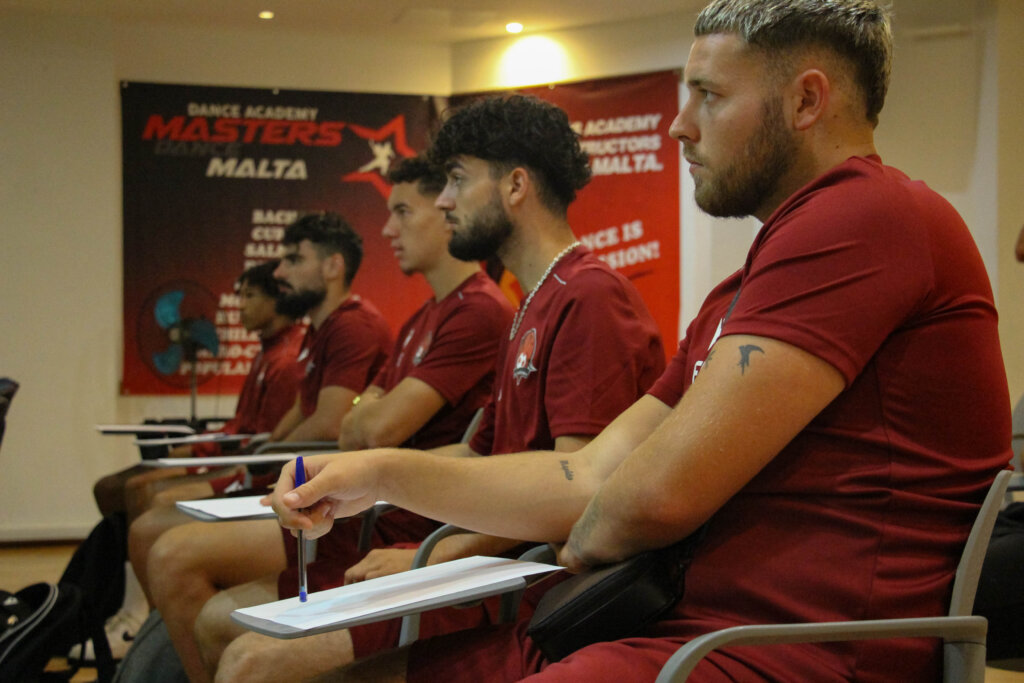Football transcends borders, unites cultures and brings together billions of fans around the world. But at the heart of this universal sport, one language dominates: English. Whether you're a young footballer aspiring to a professional career or simply passionate about the game, mastering English is no longer just an advantage - it's become an absolute necessity.
This linguistic domination did not happen by chance. It is rooted in the history of football, has been imposed by the globalisation of the sport and is reinforced every day in the dressing room, in the media and in contract negotiations. Understanding why English reigns supreme in world football also means grasping the keys to success in this ultra-competitive environment.
Summary
The historical legacy of English football
English dominates football for one simple reason: England is the cradle of the sport. Codified in 1863 by the English Football Association, modern football has exported its rules, philosophy and language all over the world.
The first professional clubs, the first organised leagues and the first sophisticated tactics emerged in the UK. This historic lead naturally established English as the reference language for football. The fundamental technical terms - "corner", "penalty", "offside" - have remained in English in most languages.
The Premier League, created in 1992, has amplified this phenomenon by becoming the global showcase for football. Its global reach has standardised the use of English as the common language of professional football.
Communication at the heart of international teams
Modern teams bring together players of dozens of different nationalities. A dressing room may contain a Brazilian, an Ivorian, a Japanese and a Norwegian - how do they communicate effectively? English is the natural working language.
This need goes beyond mere friendly exchanges. On the pitch, instant communication can make the difference between victory and defeat. Tactical instructions, ball calls and encouragement need to be understood by everyone, immediately.
The coaches, who often come from different cultures to their players, use English to convey their tactical concepts. This linguistic standardisation ensures that every member of the team fully understands their mission and their role in the team.

English, the language of the media and global distribution
Football generates billions of euros from television rights. International channels, from Sky Sports to ESPN, broadcast their programmes in English to global audiences. This economic reality is forcing clubs and players to master the language to maximise their media exposure.
Press conferences, post-match interviews and official statements are often conducted in English. A player who is unable to express himself in this language loses precious opportunities to build his image and attract international sponsors.
Social networks amplify this phenomenon. A footballer who communicates in English can directly reach hundreds of millions of fans around the world, multiplying his commercial impact and market value.
Sponsorship and marketing: English opens all doors
Professional football has become a multi-billion dollar industry where sponsorship deals can transform a career. The biggest sponsors - Nike, Adidas, Coca-Cola - operate on a global scale and naturally favour English in their marketing campaigns.
A player who is able to take part in advertising campaigns in English multiplies his contractual opportunities. They can represent a brand on every continent, take part in international promotional events and negotiate much more lucrative contracts.
This economic reality explains why players' agents insist so much on learning English. It's a direct investment in the footballer's market value.
Training and coaching: English-language resources dominate
The reference training manuals, UEFA and FIFA certifications and the most advanced tactical analyses are mainly available in English. A coach or physical trainer who does not master this language is depriving himself of privileged access to the latest innovations.
Coaching courses organised by the major federations are conducted in English. Tactical conferences, advanced training seminars and exchanges between professionals use this common language.
For a young footballer aspiring to become a professional, understanding tactical concepts in English is essential. Video analysis, strategic explanations and feedback from international coaches all require a command of the language.
Transfers and negotiations: talking business in English
The transfer market is worth hundreds of millions of euros every season. Negotiations involve agents, managers and lawyers of many different nationalities. English is the reference language for these complex transactions.
A player who directly understands the terms of his contract, who can negotiate its clauses and discuss his personal objectives gains a decisive advantage. He avoids costly misunderstandings and can truly steer his career.
Recruiting clubs also assess a player's ability to adapt. Their command of English is becoming a selection criterion, particularly for prestigious leagues such as the Premier League, MLS or certain multinational European clubs.

Engaging with a global fanbase
Modern football is built on the emotional commitment of its fans. The most successful clubs have tens of millions of fans on every continent. To create this special bond, English is essential.
A player who expresses himself directly in English on social networks, who can answer questions from international journalists and who takes part in the club's promotional events develops a unique connection with fans around the world.
This proximity is transformed into commercial value. Sales of shirts, merchandising and digital engagement depend largely on the player's ability to communicate with his international fanbase.
Conclusion
English is no longer just an asset in professional football - it has become a fundamental skill, on a par with technique or physical fitness. Clubs are investing massively in the language training of their players, in the knowledge that mastering it will multiply their sporting and commercial opportunities.
For young footballers dreaming of a professional career, learning English represents a major strategic investment. It opens the doors to the biggest leagues, facilitates integration into international teams and multiplies career opportunities.
Football will continue to go global, transfers will continue to multiply and the economic stakes will continue to grow. In this context, English will remain the universal language of football, the language that transforms a local talent into an international star.
So, are you ready to take this decisive step in your football career?

